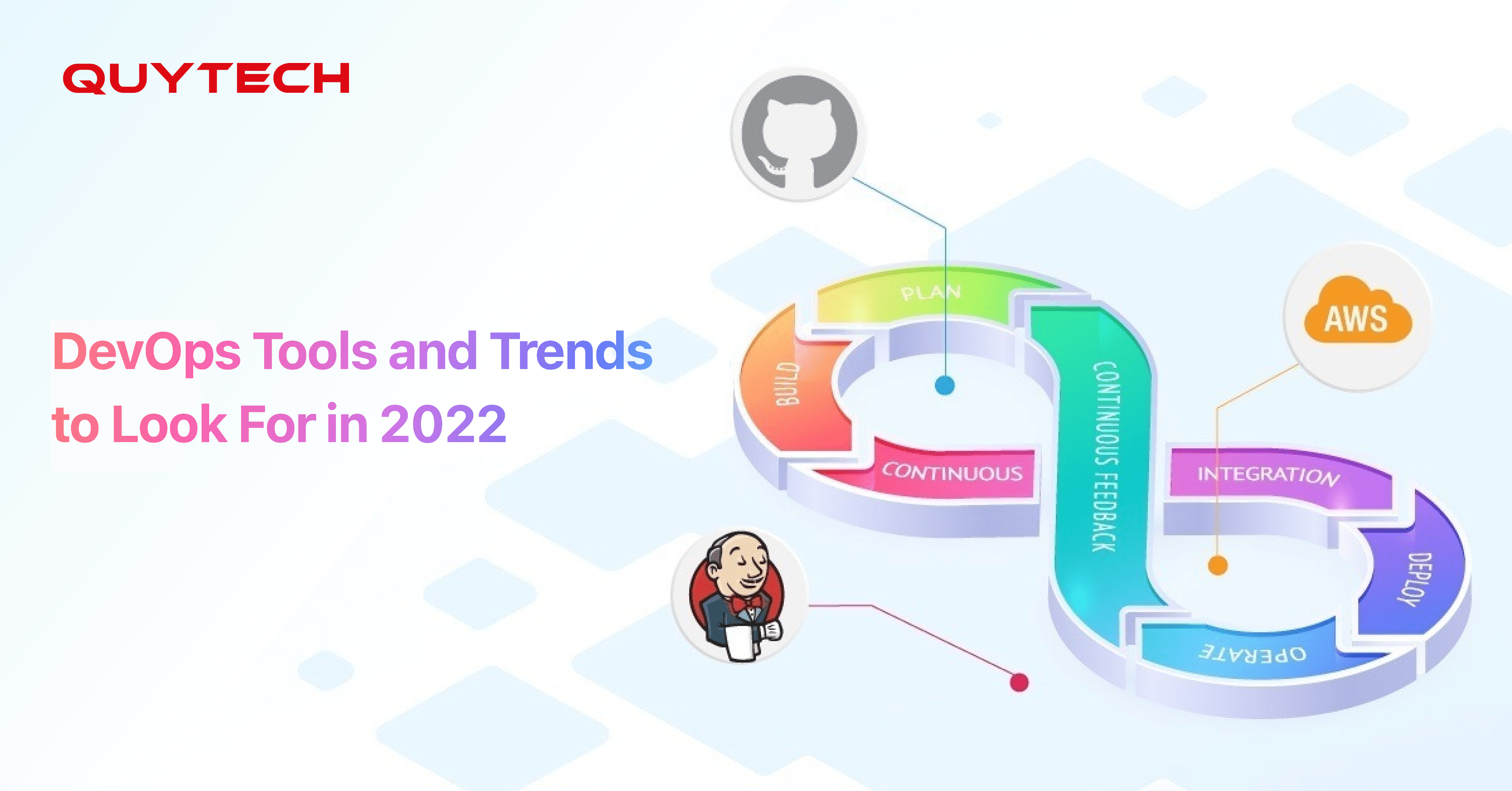It is undeniably true that DevOps has helped many companies with their complete digital transformation. Earlier, the software development and IT team used to work separately, which brought in several production-related issues. DevOps integrated the teams together for better collaboration and work productivity.
The popularity of DevOps among the IT companies is increasing at such a rate that the experts project that the market size of DevOps will reach $12.85 billion by 2025.
The prime reason behind this massive adoption is the level of operational efficiency and benefits DevOps offers. Like the other software and platforms, DevOps is constantly transforming due to the advent of new practices and trends. If you are using it, you should also know about those trends to work efficiently. And, in this article, we have highlighted all those trends that are expected to become popular in 2022 and further-
DevOps Trends 2022

- Use of Artificial Intelligence in DevOps Will Rise
AI and ML help in automating the majority of the IT operations, which ultimately saves a lot of time, cost, and effort. As per research by Gartner, it is expected that 40% of the DevOps teams will increase the use of artificial intelligence, in their applications and infrastructure, by 2023.
- DevSecOps Will Be More Dominant
With organizations relying on serverless, Docker, and other cloud-based technologies, focus will be on making security as a default segment of DevOps. According to research conducted by IDC (International Data Corporation), it is predicted that the DevSecOps will bring a minimum of 50% of new apps in Asia-Pacific by 2024.
- Use of Shift Left Phenomena
Shift left process is used to identify and troubleshoot errors during the initial phase of software development lifecycle. Doing this at the early stage saves both the cost and developers’ efforts. Use of the shared security responsibility model will be the main DevOps trends in 2022. Besides, developers will also have more authority when it comes to security, infrastructure, and other coding-related processes.
- Infrastructure Automation to Become Main Thing
In order to bring automation to delivery, configuration, and IT infrastructure of an organization, DevOps will rely on various infrastructure management tools. This will also make the IT teams more reliable and efficient.
- Increasing Role of Developers in Decision Making
Role of developers in making decisions, influencing, and selecting development tools will increase. Efficient decision making is required to solve the tech challenges developers have to go through during coding, maintenance, deployment, and other software development processes.
- Adoption of Hybrid Model for Software Development
With remote working becoming the new trend, businesses will rely on hybrid models for software development. Companies will leverage the cloud to run their information technology (IT) operations.
- AgileOps to Become a Part of DevOps
AgileOps include both the agile and DevOps techniques for managing software development, get input or output, and work as per particular user requirements. In 2022 and further years, the use of AgileOps is expected to increase.
- Adoption of Serverless Architecture
The main benefit of serverless architecture is that it renders scalability for an app or software deployment in a cost-controlled manner. As companies are looking to reduce their IT expenses without impacting their operational efficiency, the use of serverless computing and architecture will increase.
- Migration to Microservices Will Gain Significance
The use of microservices will increase and help companies to control application and software versions automatically.
Besides the aforementioned trends, there could be other DevOps trends as well. To know more about them, reach out to one of our experts. Let’s check out the DevOps tools that will create a boom in the software development industry in 2022 and beyond-
DevOps Tools 2022
- Kubernetes
Kubernetes, also written as K8, facilitates automation of development processes like deployment, maintenance, and scaling of various containers. According to an online report, the adoption of this open-source DevOps tool rose by 48% in the previous year. In 2022 as well, the tool is expected to gain more popularity.
- Github Actions
Based on Git and hosted on Github, this famous source control and software collaboration tool could automate a few DevOps workflows like branch management, code reviews, and more. The open-source tool is expected to be one of the trending tools in 2022.
- Chef
It’s an IaC (infrastructure as code) solution that relies on Ruby to facilitate automation of server configurations and functions perfectly with most of the cloud service providers. It is yet another trending DevOps tool of 2022.
- Docker
Docker is yet another popular open-source DevOps tool that builds, ships, and runs an app in the form of a lightweight container, which further builds up libraries and other files needed for a program to run. It is projected that the tool will gain immense popularity in 2022.
- Ansible
Ansible is also an open-source DevOps tool that enables automating networking, deployment, cloud provisioning, and other activities. Comes up with an easy to assemble architecture, Ansible is sponsored by Red Hat.
- ELK Stack
The tool that combines Elasticsearch, Logstash, and Kibana, allows developers to accept and input data from any source. The data is then used for creating valuable visualization. ELK Stack is expected to become a prominent part of DevOps 2022.
Stay tuned to know more about DevOps trends and tools in 2022.
Conclusion
DevOps, undoubtedly, makes the software development process easier for the developer. Just like any other platform, the trends and tools in DevOps also constantly change. To ensure you build an advanced mobile or web application or any software using DevOps, it is imperative to have an idea of the latest tools, trends, and emerging technologies in DevOps. Check out the same in this article that includes both the tools and trends.
